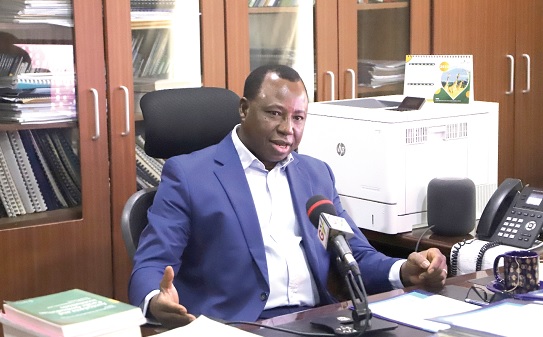
Realisation of freedoms... under Constitution
On September 21, 2023 it was widely reported that protestors who had gathered around the 37 Bus station to exercise their constitutional right to demonstrate were arrested, manhandled and subsequently detained at various police stations within Accra by the Police.
Advertisement
It was also reported that protestors at some point were denied access to their lawyers.
The reason for the Police response was that court processes to place an injunction on the protest had been served on lawyers of the leadership of protestors, and therefore, deemed such assembly unlawful.
Freedom of assembly (otherwise known as right to protest or right to demonstrate) is a basic right vital to an individual's personal development and political consciousness and enhances participation in the conduct of public affairs in his country.
The right by its nature also provides citizens with the tool to express their concerns and demand accountability from the government.
The right enables individuals to express themselves collectively and to participate in shaping their societies.
The right is of keen historic significance and this was duly recognised by Amua-Sekyi JSC in New Patriotic Party v. Inspector General of Police [1993-94] 2 GLR 459-509.
The freedom of assembly is guaranteed under chapter 5 specifically of the 1992 Constitution.
Additionally, article 11 of the African Charter on Human and People's Rights similarly indicates that "every individual shall have the right to freely assemble with others ..... "
The Commission learns that the leadership of the protestors had given notice to the Police several days back to facilitate discussions on the date, possible routes to use in order to ensure a problem-free protest.
The basis for the Police action as the Commission understands was that it had served some court process on the lawyers of the leadership of the protestors and therefore considered any attempt to undertake the protests as unlawful hence giving rise to arrests and detention of protestors.
The Commission sadly notes that Police response over the years against protestors have been disproportionate and leaves much to be desired.
It is in this context that the Commission deems it appropriate as the National Human Rights Institution (NHRl) with the mandate to promote and protect human rights under the Constitution and CHRAJ Act, 1993 (Act 456) and its obligations under the Paris Principles to issue an advisory to relevant state actors on matters of human rights concern.
While the right to demonstrate is recognised by the state as constitutionally guaranteed, the contention is in relation to how the right should be exercised against other competing legitimate interests, such as, public safety, national security, public health, the running of essential services often cited by law enforcement officials to justify restriction of the right.
It is important to indicate that the right in issue is a human and constitutional right and therefore any limitation placed on the right must satisfy the threshold stipulated under human rights law.
Issued by CHRAJ, on September 27, 2023.
Old Parliament House.




